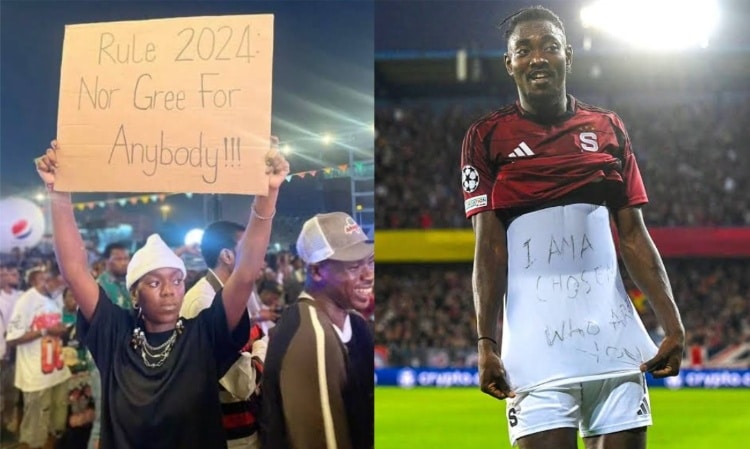Nigerians are renowned for their resilience and humour, often turning life’s struggles into creative expressions that resonate nationwide.
Every year, new slang terms emerge from viral moments, social media trends, and street culture. While some phrases have lasting power, others fade as quickly as they appear.
Here are the most popular Nigerian slangs that shaped 2024 conversations:
1. “No Gree for Anybody”
This phrase, which translates to “Don’t give in to anyone,” became a rallying cry for Nigerians in 2024. It symbolises self-assurance, defiance, and a refusal to be cheated or intimidated.
The term gained traction as people sought to face life’s challenges head-on, encouraging others to maintain their resolve in difficult situations.
2. “Barb Me This Style”
If you’ve ever seen someone living the good life and wished for the same, then “Barb me this style” is your go-to phrase.
This playful slang became a catchy way for people to express admiration or envy for someone else’s good fortune.
Often seen in comment sections on social media, it’s a humorous way of asking for divine favour or blessings.
3. “Go Warm Eba Chop”
In classic Nigerian fashion, sarcasm and humour blend perfectly in “Go warm eba chop.” Used as a witty way to tell someone to “keep quiet” or “stay in your lane,” it’s a cheeky reminder that there are better things they could be doing with their time. The phrase is often thrown around in online arguments or playful banter among friends.
4. “Steeze” and “Composure”
“Steeze” is all about effortless style, charm, and swagger. Whether it’s someone’s fashion sense or general demeanour, having “steeze” became a mark of distinction.
The term took on added flair when paired with “composure,” a nod to calmness under pressure. The iconic image of a young Kanayo O. Kanayo looking sharp in a suit and retro hairstyle gave life to the combo, making “steeze and composure” the ultimate representation of style and grace.
5. “Rizz”
An import from global slang, “rizz” found its way into Nigerian street lingo. Used to describe someone’s charm or ability to attract others, “rizz” refers to magnetic appeal, especially when it comes to romantic advances. If you have “rizz,” you have the gift of smooth talk and undeniable confidence.
6. “Na This Brain You Dey Use Cross Road?”
This phrase emerged as a playful yet cutting way to question someone’s logic. It directly translates to, “Is this the brain you use to cross the road?” and is often used when someone makes a questionable decision.
The phrase took TikTok and social media by storm, appearing in skits and comment sections to mock people’s poor choices.
7. “OS”
Unlike its technical meaning as “Operating System,” “OS” took on an entirely different context in 2024. It became a subtle, coded way of referring to a “prostitute.”
Used primarily in online spaces, the slang gained traction as a discreet way to discuss controversial topics without being too explicit.
8. “I Am a Chosen”
This phrase originated from testimonies shared by members of the Lord’s Chosen Charismatic Church, where individuals would declare, “I am a chosen.”
The statement soon morphed into a pop culture sensation, with social media users adopting it to highlight their uniqueness or God-given favour.
It became a humorous badge of honour, often used by influencers and celebrities to describe themselves as special or “set apart.”
9. “No Panic”
Paired with another phrase, “Go whine you,” this slang was a lighthearted reminder to stay calm in the face of adversity.
For instance, “The economy go whine you, but no panic” became a popular line used to highlight the difficult economic realities Nigerians faced in 2024. Despite the hard times, “No panic” was a message of encouragement and composure.
10. “T-Pain”
While many would associate this with the American singer, Nigerians had a different spin on “T-Pain” in 2024. It became a satirical reference to President Bola Tinubu and the perceived economic hardship under his administration.
This witty play on words combined the “T” from Tinubu with “Pain,” reflecting the frustrations of ordinary Nigerians dealing with rising costs and inflation. Despite its critical undertones, it inspired countless memes and online jokes.
These slangs reflect the creativity, humour, and resilience of Nigerians as they navigate daily challenges.
From playful sarcasm to bold affirmations, these phrases capture the essence of Nigeria’s vibrant pop culture.
As 2025 approaches, it will be exciting to see which new slangs rise to the top of the social lexicon.
